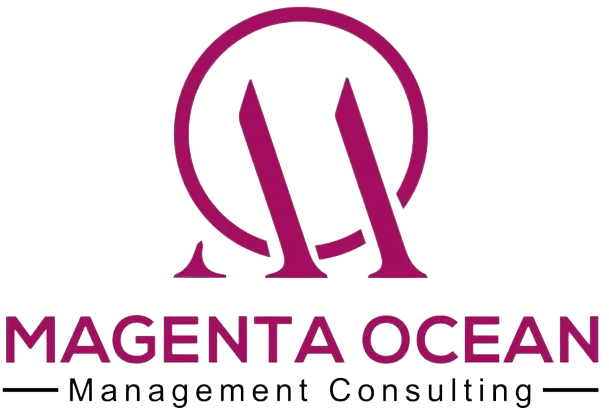
- Management Insights
Our Thinking on Management, Leadership, and Organizational Performance
- About
What We Do
Magenta Ocean Management Consulting helps small and mid-sized businesses – SMBs – build and increase organizational performance in areas that matter most to them. Through its services, including management consulting, executive coach, team coach, and project manager. Magenta Ocean’s capabilities allow it to positively impact individual and organizational performance.
Whether your specific goal is to increase revenue, scale profitably grow, build brand recognition, amplify management know-how, drive operational performance, or plan and execute strategy, the Magenta Ocean team can help deliver your organizational objectives.
From owners and managers to front-line workers, Magenta Ocean partners with clients to help their organizations achieve the objectives that matter most to them. This requires robust communication, disaggregation of problems, analytics and smartly crafted solutions integrated into core processes. By increasing capabilities, creating proficiencies, and executing, we help businesses flourish in an ever-changing business climate. Leaders of small and mid-sized businesses come to us for company-specific solutions utilizing one or more of our three capabilities: advisor, coach, and project manager. Our comprehensive model to business solutions and management performance enables structure, coordinates activities, and delivers sustained organizational performance.

Management Insights
Magenta Ocean provides insights on various leadership, management, and organizational issues. Insights contain our latest thinking on issues that matter most to small and midsize businesses including snippets and podcast clips on a wide range of topics such as hiring and promoting, sales and marketing, organizational culture and performance, revenue generation and profitable growth, information technology and cybersecurity, and more.
How Can We Help You?
Get started
Request for Information


Drop your contact details into the form, and we’ll reach out to you.




